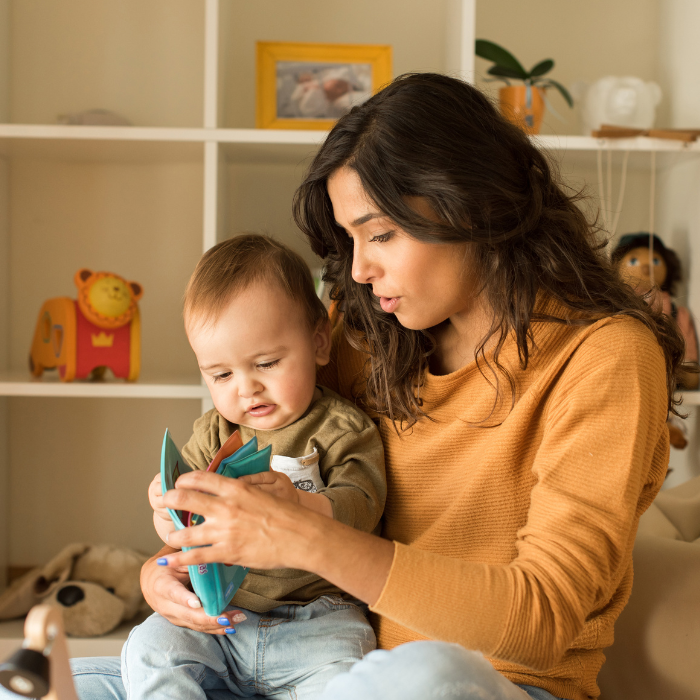
If you’re enrolling your little one in an Early Childhood Education (ECE) Centre for the first time, you’ll want to ask yourself these 10 things.
1. What’s your first impression?
Visit the centre unannounced, without ringing first to make an appointment, so you can get a quick first impression, and ask if you can have a look around. What do you notice? Do the children seem happy and settled? Are they playing and enjoying themselves, andare the teachers and carers interacting with them in an engaging manner?
2. How do the adults interact with the kids?
Are adults fully involved with the children they’re caring for, getting right in there to get messy with crafts and finger paints, wear silly costumes for singalongs, and read storybooks down on the floor with little listeners? Teachers who seem uninterested in the children, or overly engrossed in paperwork or administrative taskswhen there are childrenclamouring for their attention, are something to keep an eye on – admin tasks absolutely need to be done, but not at the expense of the children.
3. What does the ERO report say?
The Education Review Office evaluates and reports on the education and care of children and young people in early childhood services and schools. ECEs are reviewed on average once every three years. Reviews will be more frequent where the performance of a centre is poor and there are risks to the education and safety of the students, or less frequent where a school has a stable reporting history and demonstrates good self- review processes and use of its assessment information. You can ask the ECE for a copy of the ERO report, or look at it on the website.
4. What do other parents say?
Ask for the names and numbers of other families who have had children in the centre, and ring them for references. Also, if you stop by the centre around pickup time, you might get a chance to ask other parents what they think of it. Families who have had more than one child in the centre can often give you an idea of how things may have changed over time.
5. What are the ratios?
What’s the total roll, the age range of the children in the centre, how manyother children are there around your own child’s age, and what’s the teacher/ child ratio? In an ECE centre, if there are more than six children in acentre, the minimum required ratio is one adult to every 10 children over age two. There must be at least one adult to every ve children under the age of two. Some children do better in large, busy centres with lots of other children their age, while others thrive in smaller centres, so be aware of your own child’s personality and socialisation style.
6. Has there been a lot of staff turnover?
Staff coming and going all the time may be an indicator that all is not well, so ask how long the teachers have been there. In centres with high staff turnover, it can be difficult for children to form attachments with their carers, as consistent adults are important in little ones’ lives.
7. Have you visited other centres?
Visit more than one centre to get a feel for what different places are like. It’s tempting to stick to the centre closest to your home or workplace, but if you have to travel a little bit further for a place your child is going to be happier in, then it’s well worth the trouble.
8. Is there a waiting list?
Many centres, particularlyin larger towns and cities, have long waiting lists, so it pays to lock in your child’s place early if you can.
9. Have you asked questions?
“Admin” questions like what happens if your child is sick or becomes injuredwhile at the centre, whetherthere is a late pickup fee if you’re caught in traffic and can’t get there on time, if the centre is closed over the holidays and whether they still charge if they aren’t open, how they keep parents updated on their children’s progress, and what the billing/fees situation is like are all boring but necessary.
10. What early childhood development theories is the centre based on?
Some centres follow the teachings of particular early childhood development experts, while others are more academic. Play-based learning is the most appropriate method of learning for young children, so if you’re looking for a centre that will teachyour child their alphabet, counting, or other “school skills”, be clear about your expectations so you’re not disappointed if the centre does things a different way.
Points of difference
Each ECE centre has its own “vibe”, and it’s important to keep in mind that no two centres are the same, nor should they be – because no two children are the same! Ask each centre what their points of difference are. Do they offer cultural experiences or language immersion? How do they look after each individual student’s interests, preferences, and learning styles? How are cultural needs catered for? Your child deserves to be in an ECE centre where they feel “at home”, so don’t be afraid to ask lots of questions, take your time investigating, and go back for more than one visit.








